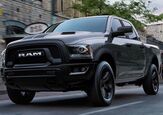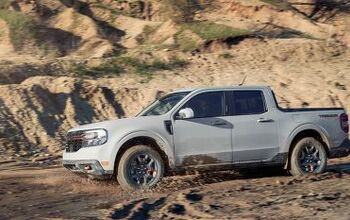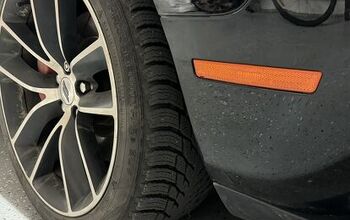Honda 'Boycotts' Facebook and Instagram

American Honda has joined a cadre of sizable brands opting to pause advertising on Facebook and Instagram in order to “stand with with people united against hate and racism.” It’s part of a broader campaign, called in which activists push brands to boycott social media giants until they enact stricter regulations about what constitutes actionable language that should be censored/penalized.
Over the last few days, we’ve seen numerous companies adopt the increasingly popular campaign, yet the reasons for doing so seem as varied as their individual terms and conditions. Multinational consumer goods company Unilever said it will scrap all social media advertising for the remainder of 2020 in the United States. While most attribute this primarily to hate-speech concerns, the company also noted that the contentious political climate on those platforms (including Twitter) having become undesirable for its own advertising purposes. Coca-Cola is similarly pausing social media spending for a few weeks, it’s made it clear that it’s not joining the official boycott, despite claims to the contrary in the news.
While Honda’s involvement in the movement is a little easier to follow, there are still a few twist and turns.
The automaker’s boycott only lasts one month and will not incorporate Twitter, which often serves as a display board for corporate announcements. Honda did issue a general press release, however, going into great detail to explain what we had hoped would have been obvious. It took some direct action to support minority communities as well — making sure to mention them in the release.
Curiously, Honda recently announced it would advance its “The Power Of Something Greater” advertising campaign across social media. The marketing theme revolves around the company’s pledge to communities and customers in response to the COVID-19 pandemic by “adding meaning to The Power of Dreams during these unprecedented times.” It’s focused almost entirely on social media. While we’re sure it’s an accident, potentially as the result of awkward timing, the two campaigns are largely at odds with each other.
Unless the manufacturer plans to delay pandemic-related content until the August, or just keep everything isolated to Twitter, the coronavirus content technically undermines the commitment just by existing.
With corporate finances in a bad way and social media having become a minefield for any and all posters, we would imagine other automakers will enjoy taking a break from advertising while earning some free press for doing so. Honda may just be the first of many automakers to join in.
We are united in the pursuit of equality and justice, and stand with the Black community in the face of systemic racism and discrimination. Honda values are grounded in human respect and we must take action. Read more: https://t.co/CjBVVcLX9n
— HondaInclusion (@HondaInclusion) June 4, 2020
[Image: Anastasiia Moiseieva/Shutterstock]

A staunch consumer advocate tracking industry trends and regulation. Before joining TTAC, Matt spent a decade working for marketing and research firms based in NYC. Clients included several of the world’s largest automakers, global tire brands, and aftermarket part suppliers. Dissatisfied with the corporate world and resentful of having to wear suits everyday, he pivoted to writing about cars. Since then, that man has become an ardent supporter of the right-to-repair movement, been interviewed on the auto industry by national radio broadcasts, driven more rental cars than anyone ever should, participated in amateur rallying events, and received the requisite minimum training as sanctioned by the SCCA. Handy with a wrench, Matt grew up surrounded by Detroit auto workers and managed to get a pizza delivery job before he was legally eligible. He later found himself driving box trucks through Manhattan, guaranteeing future sympathy for actual truckers. He continues to conduct research pertaining to the automotive sector as an independent contractor and has since moved back to his native Michigan, closer to where the cars are born. A contrarian, Matt claims to prefer understeer — stating that front and all-wheel drive vehicles cater best to his driving style.
More by Matt Posky
Latest Car Reviews
Read moreLatest Product Reviews
Read moreRecent Comments
- Redapple2 TTAC ate my post. 2 paragraphs. Hit Send. No post apprears. 3rd time. I ll write less. Becoming the KMart of sites?
- SCE to AUX The Supercharger network is one Tesla product universally admired, and they got rid of that team? Who will do this work now?As I've said before, Mr Musk needs to go.
- Tane94 FWD models only come with a CVT -- Huge mistake, Mary Barra.
- Redapple2 Wall Street Journal yesterday. A story on how fed requirements for carbon sequestration will close natural gas and coal elect generating plants. In the mean time, elect demand to double. BEV cars, AI, Crypto, population. Severe Shortage obvious. Add in 6-8 yr approval of transmission lines, add 2-4 yrs construction of lines. Also adding to delay. 2-5 yr backlog of large transformers.WSJ today. Current Admin wants International Energy Conservation Code standards applied to house building. This will add $31,000 to the price of a standard house.Get they self to a red state. Pronto. (Except you libs/jacobins- please stay in your blue states)
- Tassos Newsmaxx tells me sustainability is a euphemism for socialism.


































Comments
Join the conversation
After reading a few comments here. I realized that most Americans have very little knowledge of the constitution. Most people assume what the news told them to be correct. We are giving up our rights with out knowing what we are doing. Big tech are private companies that are looking out for their best interests. Congress should take away their exemption. Reading the constitution and getting a 90% grade on it should be taken before having the right to vote. Did you know the reason the electoral college was put in place because of the founders wanted voters to be informed and make rational decisions.
I wonder what role Google has in any of this. Isn't Facebook the only substantial competitor to AdSense for advertising dollars? We all know Google dives into any kind of diversity/"social justice" initiative to the exclusion of all reason once they convince themselves it's morally superior to do so. If they could twist arms by contemplating the modification of their prioritization algorithm to consolidate their monopoly advertising position in the name of social justice, why that's doing good work!